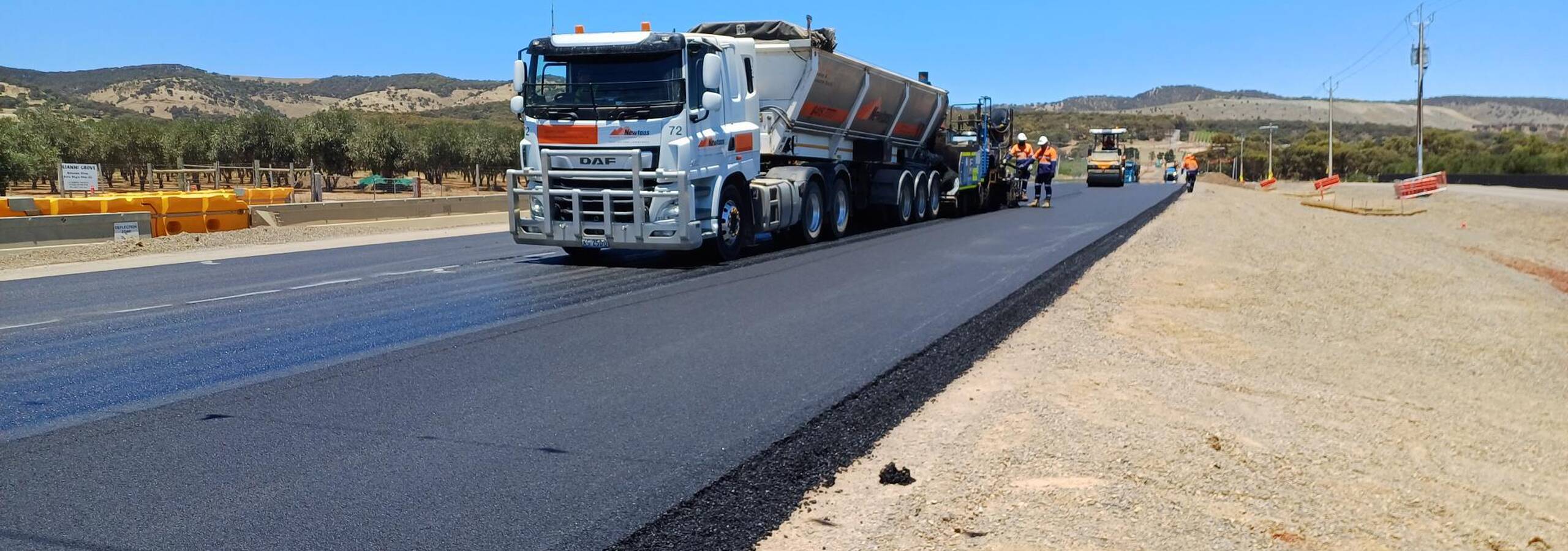Building greener roads for the Fleurieu
The Fleurieu Connections Alliance is driving innovation and sustainability in road construction and paving the way to net zero.
The use of recycled crushed glass, recycled asphalt, and warm mix asphalt are three of the sustainability measures being employed in the pavement construction for Stage 2 of the Main South Road duplication.
The equivalent of more than 31 million recycled glass bottles or almost 7000 tonnes of glass will be repurposed in the construction of the new roadway from Aldinga to Sellicks Beach. The recycled glass replaces a portion of natural sand in the asphalt. This glass is diverted from the local waste stream creating a circular economy and a big win for sustainability.
To further lighten the carbon footprint, recycled asphalt from South Australian road projects will be incorporated into the road duplication project. The recycled asphalt—also known as RAP—has been reclaimed from roadworks across Adelaide including the Fleurieu Peninsula. Almost 18,000 tonnes of recycled asphalt will be used across the stage 2 project.
The green road construction initiatives don’t stop there. The project is also slashing energy consumption by using a cooler asphalt mix for the majority of the layers of the new roadway. Warm mix asphalt is produced and laid at a temperature of 130-140 degrees Celsius compared to regular asphalt, which is 170-180 degrees. The lower temperature requires less energy and, as a result, lowers the project’s carbon emissions.
Fulton Hogan is the contractor responsible for placing the asphalt for the Main South Road Duplication (Stage 2), and also the now completed Main South Road Stage 1 and Victor Harbor Road duplication projects.
Justin Cross, General Manager Central Fulton Hogan says: ‘Fulton Hogan is proud to support the Fleurieu Connections Alliance Project with our sustainable initiatives by playing our part in addressing global environmental challenges and enhancing social outcomes for the community.’
Fleurieu Connections Alliance’s Environment Manager Nick Travers says that using recycled materials in roads and pavements offers significant environmental and socio-economic benefits.
“Reusing materials such as asphalt and glass has a much lower carbon footprint when compared to quarrying, processing and transporting new materials to a work site” he says.
“The reuse of waste materials in local projects also supports the circular economy and provides economic and social benefits through new industries and employment.”
Other sustainable solutions on the Stage 2 duplication project include water savings measures such as the use of locally made dust suppressant products, planting native species grown from locally sourced seed, and the use of water sensitive design principles. The project also conducted an Australian-first trial of a vertical axis wind turbine to power site compounds and electric vehicles.

